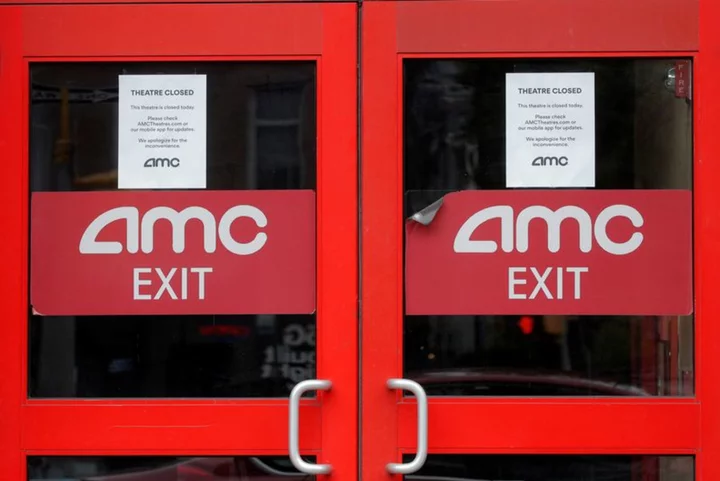By Tom Hals and Jody Godoy
WILMINGTON, Delaware (Reuters) -A Delaware judge approved AMC Entertainment's
The ruling sent the shares of the company's common and preferred stock soaring 27%.
AMC has told investors it is burning cash at an unsustainable rate and that the settlement would clear the way for the company to sell more shares and pay down some of its $5.1 billion in debt.
Under the approved class action settlement, AMC will provide stock worth an estimated $129 million to holders of its common stock to settle potential legal claims related to a stock conversion plan.
The approved class settlement did not allow shareholders to opt out and binds them to the agreement.
On July 21, the same judge, Delaware Vice Chancellor Morgan Zurn, rejected a prior version of the settlement because it also settled potential claims by preferred shareholders who were not represented in the lawsuit.
That provision was removed from the proposed settlement that Zurn approved on Friday.
More than 2,800 objections to the initial settlement were filed by shareholders, a level of interest Zurn called "unprecedented." Many of those objectors sought permission to opt out of the settlement and sue on their own behalf, dismissing AMC's dire financial predictions as "fear tactics."
Zurn said an opt-out was not feasible and would be detrimental to the company and its shareholders.
The company was sued in February for allegedly rigging a shareholder vote that would allow AMC to convert preferred stock to common stock and issue hundreds of millions of new shares.
The investors who sued alleged AMC had come up with the plan to circumvent the will of common stock holders who opposed the company diluting their holdings.
Without the proposed settlement, common stockholders and preferred shareholders would end up owning 34.28% and 65.72% of AMC, respectively. Under the proposed settlement, common stockholders and preferred shareholders would own 37.15% and 62.85%, respectively.
The case is In re: AMC Entertainment Holdings Inc. Stockholder Litigation, No. 2023-0215, in the Delaware Court of Chancery.
(Reporting by Tom Hals in Wilmington, Delaware, editing by Deepa Babington)









